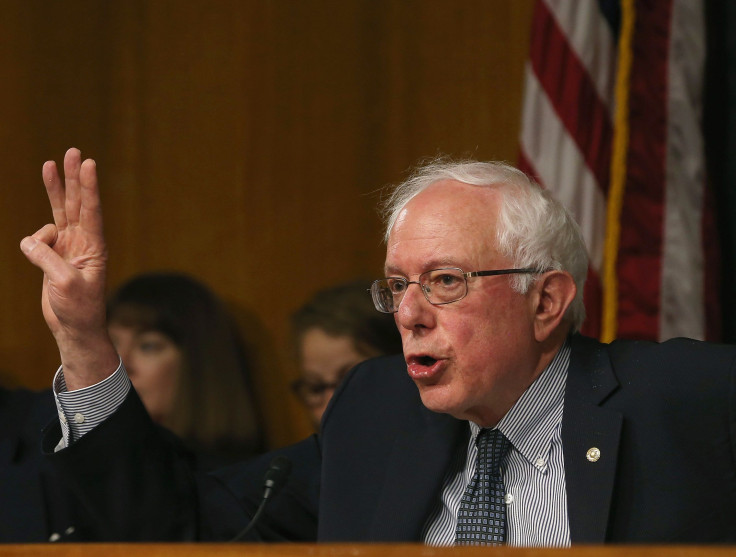Bernie Sanders 2016 Presidential Run: 'We're In This Race To Win,' Vermont Senator Says

On a green lawn on Capitol Hill early Thursday afternoon, U.S. Senator Bernie Sanders, I-Vt., made a brief appearance to explain why he was running for president. In some ways, though, the senator seemed just as bent on highlighting the deep, systemic flaws he sees in American politics and society.
"There are enormous issues facing this country," he said in his usual brusque, blunt manner, citing employees who work harder yet earn less, students who either can't afford to go to college or graduate with mountains of debt and billionaire families who "are literally able to buy elections and candidates." Evoking his own humble roots, including a father who immigrated to the United States at the age of 17 and never graduated high school, Sanders cast himself as a candidate who would foster "serious debates over serious issues" among presidential contenders, rather than provide fodder for political gossip and the soap operas that he said campaigns have become.
Many do not expect Sanders to win the Democratic nomination, much less the presidency itself, a fact to which the senator seemed to allude, noting that he had hesitated over running because of the high price of campaigns. He also posed the question of whether in an age where money pervades politics it would be possible "for any candidate who is not a billionaire or not beholden to billionaires" to actually win the presidency. He noted that he would run a campaign dependent on smaller contributions from individuals rather than large corporate donations. Yet, despite these doubts, he also exclaimed, "We're in this race to win."
Sanders, an Independent, first confirmed his candidacy Wednesday night to the Associated Press. Some have suggested that his presence in the 2016 race will help draw the Democratic party and presumed nominee Hillary Clinton further to the left as well as highlight issues about which Sanders has been so vocal. Polling indicated a win for him is unlikely, with support among Democrats ranging from 3 percent in some cases to 12 percent in the state of New Hampshire.
Sanders did not dawdle or linger to answer many questions Thursday. After less than 15 minutes, he ended the conference, saying, "I've got to get going."
© Copyright IBTimes 2024. All rights reserved.






















